When addiction and mental health disorders intertwine within a relationship, the path to healing becomes exponentially more complex. For couples facing these dual challenges, traditional individual treatment approaches often fall short of addressing the intricate dynamics that fuel both conditions. This is where specialized dual diagnosis treatment for couples in rehab emerges as a beacon of hope, offering comprehensive care that treats both partners simultaneously while addressing their individual and collective struggles.
The journey toward recovery as a couple requires more than separate treatment plans running parallel to each other. It demands an integrated approach that recognizes how deeply addiction and mental health issues are woven into the fabric of the relationship itself. At Couples Rehabs, we understand that healing happens most effectively when couples work together, supporting each other through the challenging but ultimately rewarding process of dual recovery.
Understanding Dual Diagnosis in Relationships
What Are Co-Occurring Disorders?
Co-occurring disorders, also known as dual diagnosis, occur when an individual simultaneously experiences a substance use disorder alongside one or more mental health conditions. These might include depression, anxiety, PTSD, bipolar disorder, or other psychiatric conditions. When both partners in a relationship struggle with these interconnected issues, the complexity multiplies dramatically.
The relationship between addiction and mental illness isn’t simply coincidental – they often feed off each other in a destructive cycle. Someone might begin using substances to self-medicate symptoms of depression or anxiety, only to find that continued use worsens their mental health over time. Meanwhile, their partner may develop their own coping mechanisms, potentially including substance use, to deal with the stress and trauma of watching their loved one struggle.
How Mental Health and Addiction Impact Couples
The ripple effects of dual diagnosis extend far beyond individual symptoms. When one or both partners struggle with co-occurring disorders, every aspect of the relationship feels the impact. Communication breaks down as substances cloud judgment and mental health symptoms interfere with emotional availability. Trust erodes through broken promises and unpredictable behavior. Intimacy suffers as partners become strangers to themselves and each other.
Consider Sarah and Michael, a couple who entered treatment after years of escalating problems. Sarah’s anxiety disorder led her to rely heavily on prescription medications, while Michael turned to alcohol to cope with the stress of watching his wife struggle. Their individual problems became intertwined, creating a web of codependency, enabling behaviors, and mutual self-destruction that neither could break alone.
The Unique Challenges Couples Face with Dual Diagnosis
Codependency and Enabling Behaviors
Couples dealing with dual diagnosis often develop unhealthy patterns that seem helpful on the surface but actually perpetuate the problem. One partner might cover for the other’s substance use, call in sick for them, or handle responsibilities they’ve neglected. While these actions stem from love and concern, they prevent the struggling partner from experiencing the natural consequences of their actions.
Codependency in dual diagnosis relationships goes deeper than typical relationship dynamics. When mental health issues are involved, partners may feel an intense need to “fix” or “save” each other, leading to an exhausting cycle where both people lose their individual identities in service of managing crises.
Communication Breakdowns During Crisis
Effective communication becomes nearly impossible when addiction and mental health symptoms are active. Mood swings, paranoia, depression, and substance-induced behavior create an environment where honest, productive conversations simply can’t happen. Partners may find themselves walking on eggshells, never knowing which version of their loved one they’ll encounter on any given day.
These communication breakdowns often lead to escalating conflicts, emotional distance, and a gradual erosion of the foundation that once held the relationship together. Without professional intervention, couples frequently find themselves stuck in destructive patterns that neither partner knows how to break.
Financial and Social Consequences
The financial toll of dual diagnosis affects couples in multiple ways. There are direct costs associated with substance use, potential legal issues, and lost income from inability to work consistently. Meanwhile, mental health symptoms may require expensive treatments, medications, and therapy sessions. Many couples exhaust their savings trying to manage these challenges individually, adding financial stress to an already overwhelming situation.
Socially, couples with dual diagnosis often become increasingly isolated. Friends and family members may distance themselves due to unpredictable behavior, missed commitments, or simply not understanding the complexity of what the couple is experiencing. This isolation removes crucial support systems right when they’re needed most.
Why Traditional Individual Treatment Falls Short for Couples
Individual treatment approaches, while valuable, miss crucial elements when both partners are struggling with co-occurring disorders. When one partner enters treatment while the other remains untreated, several problems emerge. The recovering partner returns to an unchanged environment where their partner’s ongoing struggles can trigger relapse. Meanwhile, the untreated partner may feel abandoned, resentful, or threatened by their partner’s changes.
Even when both partners pursue individual treatment simultaneously, the lack of coordination can create conflicting therapeutic approaches. One therapist might recommend strategies that directly contradict another’s advice, leaving the couple confused and potentially undermining both treatment efforts.
Perhaps most importantly, individual treatment fails to address the relationship dynamics that contribute to and maintain both addiction and mental health issues. The couple’s communication patterns, enabling behaviors, shared traumas, and codependent dynamics remain unexamined and unchanged, creating a foundation that’s still vulnerable to relapse and continued mental health struggles.
Comprehensive Dual Diagnosis Treatment Approaches for Couples
Integrated Addiction and Mental Health Treatment for Couples
Effective dual diagnosis treatment for couples requires seamless integration of addiction and mental health services within a couples-focused framework. This means addressing substance use disorders and psychiatric conditions simultaneously while also working on relationship dynamics and communication patterns.
At Couples Rehabs, our integrated addiction and mental health treatment for couples begins with comprehensive assessments of both partners’ individual needs and their relationship dynamics. Treatment plans are carefully coordinated to ensure that individual therapy, couples sessions, and group work all support the same recovery goals.
This integrated approach recognizes that mental health symptoms often drive substance use, while addiction frequently exacerbates psychiatric conditions. Rather than treating these as separate problems, our clinicians address them as interconnected aspects of a complex whole.
Behavioral Couples Therapy for Co-Occurring Mental Health Issues
Behavioral couples therapy for co-occurring mental health issues forms the cornerstone of effective dual diagnosis treatment. This evidence-based approach helps couples identify and change destructive patterns while building new, healthier ways of relating to each other.
The therapy focuses on improving communication skills, developing healthy coping strategies, and creating accountability systems that support both partners’ recovery. Couples learn to recognize triggers – both individual and relational – and develop concrete strategies for managing them together.
Holistic Dual Diagnosis Care for Couples
Holistic dual diagnosis care for couples extends beyond traditional therapy to address the physical, emotional, spiritual, and social aspects of recovery. This might include nutritional counseling to address the physical damage caused by substance use, mindfulness and meditation practices to manage mental health symptoms, and recreational therapy to help couples rediscover joy and connection in healthy activities.
Physical wellness plays a crucial role in both addiction recovery and mental health stability. Couples in our programs engage in fitness activities together, learn about nutrition’s impact on mood and recovery, and develop healthy routines that support their ongoing wellness.
Specific Treatment Programs for Common Co-Occurring Conditions
Couples Therapy for Substance Abuse and Depression
Depression and substance abuse create a particularly challenging combination for couples. The hopelessness and emotional numbness of depression often drive substance use, while addiction deepens depressive symptoms and creates additional problems that fuel the cycle.
Our couples therapy for substance abuse and depression addresses both conditions simultaneously. Partners learn to recognize depression symptoms in themselves and each other, develop healthy ways to provide support without enabling, and create structured routines that promote both sobriety and emotional wellness.
Treatment includes psychoeducation about the relationship between depression and addiction, skills training for managing depressive episodes without substances, and couples exercises designed to rebuild emotional intimacy that depression and addiction have damaged.
Anxiety and Addiction Treatment for Couples in Residential Rehab
Anxiety disorders and substance use disorders frequently co-occur, with each condition intensifying the other. In our anxiety and addiction treatment for couples in residential rehab, partners learn evidence-based techniques for managing anxiety while building a substance-free life together.
The residential setting provides a safe environment where couples can practice new coping skills without the pressures and triggers of their home environment. Daily structure, 24-hour support, and intensive therapy help couples break the cycle of anxiety-driven substance use.
PTSD and Alcoholism Couples Recovery Program
Trauma affects entire relationships, not just individuals. Our PTSD and alcoholism couples recovery program recognizes that trauma symptoms in one partner impact both people, often leading to secondary trauma and unhealthy coping mechanisms in the unaffected partner.
Treatment incorporates trauma-informed care principles, ensuring that all interventions are designed with awareness of how trauma affects brain function, behavior, and relationships. Couples learn about trauma’s impact on their relationship and develop skills for supporting each other’s healing without taking on responsibility for fixing their partner’s trauma.
Bipolar Disorder and Drug Addiction Treatment for Spouses
The mood swings and unpredictability of bipolar disorder can drive both the affected individual and their partner toward substance use as a coping mechanism. Our bipolar disorder and drug addiction treatment for spouses addresses the unique challenges these couples face.
Treatment focuses heavily on mood stabilization, medication compliance, and developing relationship strategies that work with bipolar disorder rather than against it. Partners learn to recognize mood episode warning signs, create safety plans for crisis situations, and maintain their own emotional health while supporting their spouse’s recovery.

The Treatment Process: What to Expect at Couples Rehabs
Initial Assessment and Personalized Treatment Planning
The journey begins with comprehensive assessments of both partners’ mental health, substance use history, relationship dynamics, and individual needs. Our clinical team conducts detailed interviews, psychological testing, and medical evaluations to understand the full scope of each couple’s situation.
This assessment phase typically takes several days and involves both individual and couples sessions. The goal is to identify not just what disorders are present, but how they interact with each other and with the relationship dynamics. From this information, our team creates individualized treatment plans that address each person’s needs while supporting the couple’s shared recovery goals.
Residential vs. Outpatient Options
Couples Rehabs offers both residential and outpatient options for dual diagnosis treatment, with the choice depending on the severity of symptoms, previous treatment history, and life circumstances. Residential treatment provides the most intensive level of care, with couples living on-site and participating in therapy sessions, groups, and activities throughout the day.
Outpatient programs allow couples to maintain work and family responsibilities while receiving several hours of treatment per week. This option works well for couples with strong support systems and less severe symptoms, or as a step-down from residential care.
Family Involvement and Support Systems
Recovery doesn’t happen in isolation, and our programs actively involve family members and support systems when appropriate. Family therapy sessions help address how dual diagnosis has affected extended relationships and create a support network for ongoing recovery.
Children of couples in treatment receive special attention, as they’ve often been significantly impacted by their parents’ struggles. Age-appropriate education and support help children understand what their parents are going through and develop healthy coping skills of their own.
Evidence-Based Therapies Used in Couples Dual Diagnosis Treatment
Cognitive Behavioral Therapy for Couples
Cognitive Behavioral Therapy (CBT) adapted for couples focuses on identifying and changing thought patterns and behaviors that contribute to both addiction and mental health issues. Couples learn to recognize distorted thinking patterns that fuel conflict and relapse, developing more realistic and healthy ways of interpreting situations.
The therapy teaches practical skills for managing cravings, mood symptoms, and relationship conflicts. Couples practice these skills together, creating a shared language and approach for handling challenges that arise during recovery.
Dialectical Behavior Therapy Applications
Dialectical Behavior Therapy (DBT) skills are particularly valuable for couples dealing with emotional regulation difficulties, whether from bipolar disorder, borderline personality disorder, or the emotional instability that often accompanies addiction. The therapy teaches distress tolerance, emotional regulation, interpersonal effectiveness, and mindfulness skills.
Couples learn these skills together, creating a toolkit they can use individually and as a team. The emphasis on distress tolerance is particularly valuable during early recovery when emotions can feel overwhelming and the urge to use substances or engage in destructive behaviors is strong.
Trauma-Informed Care Approaches
Recognizing that trauma often underlies both addiction and mental health issues, all our treatment approaches incorporate trauma-informed care principles. This means creating safety, trustworthiness, peer support, collaboration, empowerment, and attention to cultural and gender issues throughout the treatment process.
Trauma-informed care ensures that treatment doesn’t inadvertently re-traumatize clients and that healing happens in an environment of safety and empowerment rather than confrontation and shame.
Addressing Underlying Trauma and Substance Use Together
Many couples in dual diagnosis treatment have experienced significant trauma, either individually or together. This trauma often serves as the root cause of both mental health symptoms and addiction. Our couples rehab addressing underlying trauma and substance use takes a careful, coordinated approach to healing these deep wounds.
Treatment might include Eye Movement Desensitization and Reprocessing (EMDR), somatic therapies, or other trauma-specific interventions. Importantly, trauma work is carefully timed and paced to ensure that clients have adequate coping skills and support before processing traumatic memories.
Partners learn how to support each other’s trauma healing without becoming overwhelmed themselves. This includes understanding secondary trauma, setting appropriate boundaries, and maintaining their own self-care practices.
Success Stories and Long-Term Recovery Outcomes
Research consistently shows that couples who receive treatment together have better outcomes than those who pursue individual treatment alone. The support, accountability, and shared commitment to recovery that comes from treating couples together creates a foundation for long-term success.
Success looks different for every couple, but common outcomes include improved communication, rebuilt trust, better management of mental health symptoms, sustained sobriety, and renewed intimacy and connection. Many couples report that their relationship is stronger after treatment than it was before their struggles began.
Long-term follow-up studies show that comprehensive psychiatric and addiction treatment for couples leads to lower relapse rates, better mental health outcomes, and higher relationship satisfaction compared to individual treatment approaches.
Choosing the Right Dual Diagnosis Program for Your Relationship
Questions to Ask Treatment Providers
When evaluating dual diagnosis programs, couples should ask specific questions about the provider’s experience with co-occurring disorders, their approach to couples treatment, and their success rates. Important questions include: How do you coordinate individual and couples treatment? What specific training do your therapists have in dual diagnosis? How do you handle situations where partners are at different stages of recovery?
It’s also important to understand the program’s philosophy and approach. Some programs focus primarily on addiction with mental health as a secondary concern, while others truly integrate both aspects of treatment. Look for programs that demonstrate understanding of how relationship dynamics contribute to and can help heal dual diagnosis.
Insurance Coverage and Financial Planning
Understanding insurance coverage for dual diagnosis treatment can be complex, as it involves both addiction and mental health benefits. Many insurance plans cover these services, but the specific coverage can vary significantly. Our admissions team works with couples to understand their benefits and create financial plans that make treatment accessible.
It’s worth noting that the cost of comprehensive treatment is often less than the ongoing costs of untreated dual diagnosis, including legal fees, medical expenses, lost income, and relationship breakdown.
Maintaining Recovery as a Couple: Aftercare and Ongoing Support
Recovery doesn’t end when formal treatment concludes. Successful long-term recovery requires ongoing support, continued skill practice, and regular check-ins with mental health professionals. Our aftercare programs help couples transition back to daily life while maintaining the progress they’ve made in treatment.
This might include regular couples therapy sessions, participation in support groups, medication management, and crisis planning. Many couples find that the skills they learned in treatment continue to serve them well beyond their recovery, improving their relationship and life satisfaction in ways they never expected.
The journey of dual diagnosis recovery for couples is challenging but deeply rewarding. With comprehensive, integrated treatment that addresses both individual needs and relationship dynamics, couples can not only overcome their struggles with addiction and mental health but build stronger, more fulfilling relationships than they ever thought possible. At Couples Rehabs, we’re honored to be part of this transformation, providing the specialized care that couples need to heal together and thrive in recovery.
Frequently Asked Questions About Dual Diagnosis Treatment for Couples
How long does dual diagnosis treatment for couples typically take?
The duration of dual diagnosis treatment varies significantly based on the severity of conditions, previous treatment history, and individual progress. Most residential programs range from 30 to 90 days, while outpatient treatment can continue for several months or even years. The key is finding the right balance between intensive treatment and sustainable long-term care. Many couples benefit from stepping down through different levels of care, starting with residential treatment and transitioning to outpatient support as they build stronger recovery foundations.
Can couples with different diagnoses be treated together?
Absolutely. It’s common for partners to have different mental health conditions or substance use patterns. For example, one partner might struggle with depression and alcohol addiction while the other deals with anxiety and prescription drug dependence. Our treatment approach is highly individualized while maintaining focus on the relationship dynamics. Each partner receives specialized care for their specific conditions while participating in couples therapy that addresses how their different struggles interact within the relationship.
What if only one partner is ready for treatment?
This situation is more common than many people realize. When only one partner is ready for treatment, we work with the motivated partner to create strategies for encouraging their loved one to seek help. This might include family interventions, education about dual diagnosis, and individual therapy to help the ready partner avoid enabling behaviors. Sometimes, seeing positive changes in one partner motivates the other to pursue treatment. However, the most effective outcomes occur when both partners are actively engaged in the recovery process.
Will insurance cover couples dual diagnosis treatment?
Most insurance plans cover dual diagnosis treatment since it addresses both addiction and mental health conditions, which are typically covered benefits. However, coverage specifics vary by plan and provider. Some plans may have limitations on couples therapy components or prefer individual treatment approaches. Our admissions team works closely with couples to verify benefits, understand coverage limitations, and explore all available options including financing plans when needed.
How do you handle couples who want to separate during treatment?
Relationship difficulties often intensify during early recovery as partners face their problems honestly for the first time. Some couples do decide to separate during or after treatment, and our clinical team is prepared to support these decisions when they’re in everyone’s best interest. Treatment continues with a focus on co-parenting skills, healthy separation processes, and individual recovery goals. Importantly, many couples who consider separation during treatment find that their relationship improves significantly as they develop better communication and coping skills.
What happens to our children during residential treatment?
Family considerations are a crucial part of treatment planning. For residential programs, couples need to arrange childcare through family members, friends, or professional services. Many couples find that this temporary separation, while difficult, ultimately benefits their children by allowing parents to focus fully on recovery. We provide family therapy sessions that can include children when appropriate, helping families understand the recovery process and rebuild healthy relationships. Our social workers can also help couples navigate childcare resources and plan for family reunification.
Can we stay in the same room during residential treatment?
Room arrangements depend on several factors including the stage of treatment, relationship dynamics, and clinical recommendations. Early in treatment, couples might benefit from separate accommodations to focus on individual healing and avoid potential conflicts during detox and initial stabilization. As treatment progresses and couples demonstrate healthy communication skills, shared accommodations may become appropriate. The decision is always made collaboratively between the couple and their treatment team based on what will best support recovery goals.
What if we relapse together after treatment?
Relapse, while not the goal, is sometimes part of the recovery journey. The important thing is having a plan in place before it happens. Our aftercare planning includes detailed relapse prevention strategies, crisis contact information, and clear steps for re-engaging with treatment if needed. Couples who relapse together often benefit from intensive outpatient treatment or a brief return to residential care. The skills learned in previous treatment aren’t lost – they become the foundation for renewed recovery efforts.
How do you address domestic violence or abuse in relationships?
Safety is always our top priority. During assessment, we carefully screen for any history of domestic violence or abuse. If safety concerns exist, we may recommend individual treatment first, couple separation, or specialized trauma-informed approaches that address abuse dynamics. Some couples with histories of emotional abuse can work together safely in treatment, while others need individual healing before couples work is appropriate. Our clinical team includes specialists trained in domestic violence dynamics who can make these crucial safety assessments.
What makes couples treatment different from individual treatment?
Individual treatment focuses on personal recovery goals and individual coping strategies. Couples treatment addresses these same individual needs while also examining relationship patterns, communication dynamics, enabling behaviors, and shared triggers. Couples learn to support each other’s recovery rather than inadvertently undermining it. They develop shared vocabulary and strategies for handling challenges together. Research shows that couples who receive treatment together have lower relapse rates and better relationship outcomes compared to those who pursue individual treatment alone.
If you and your partner are struggling with co-occurring addiction and mental health issues, know that help is available. Contact Couples Rehabs today to learn more about our comprehensive dual diagnosis treatment programs designed specifically for couples. Recovery is possible, and it’s more achievable when you don’t have to face it alone.




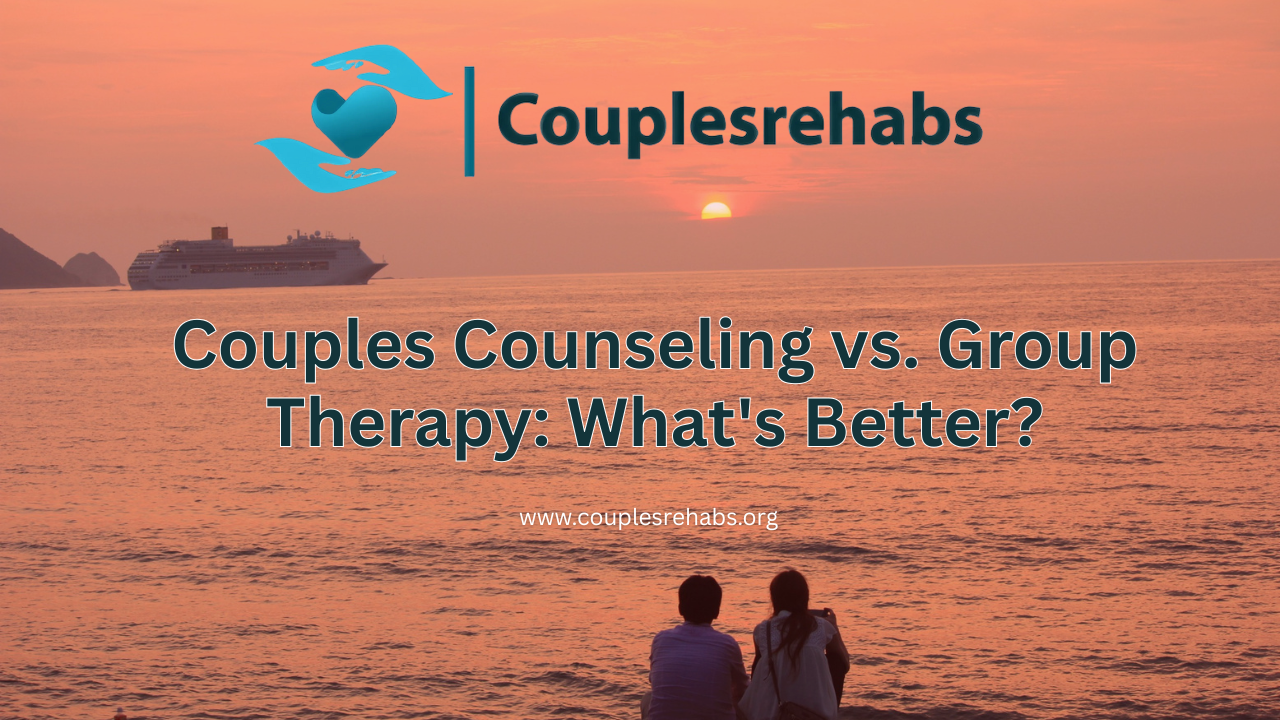

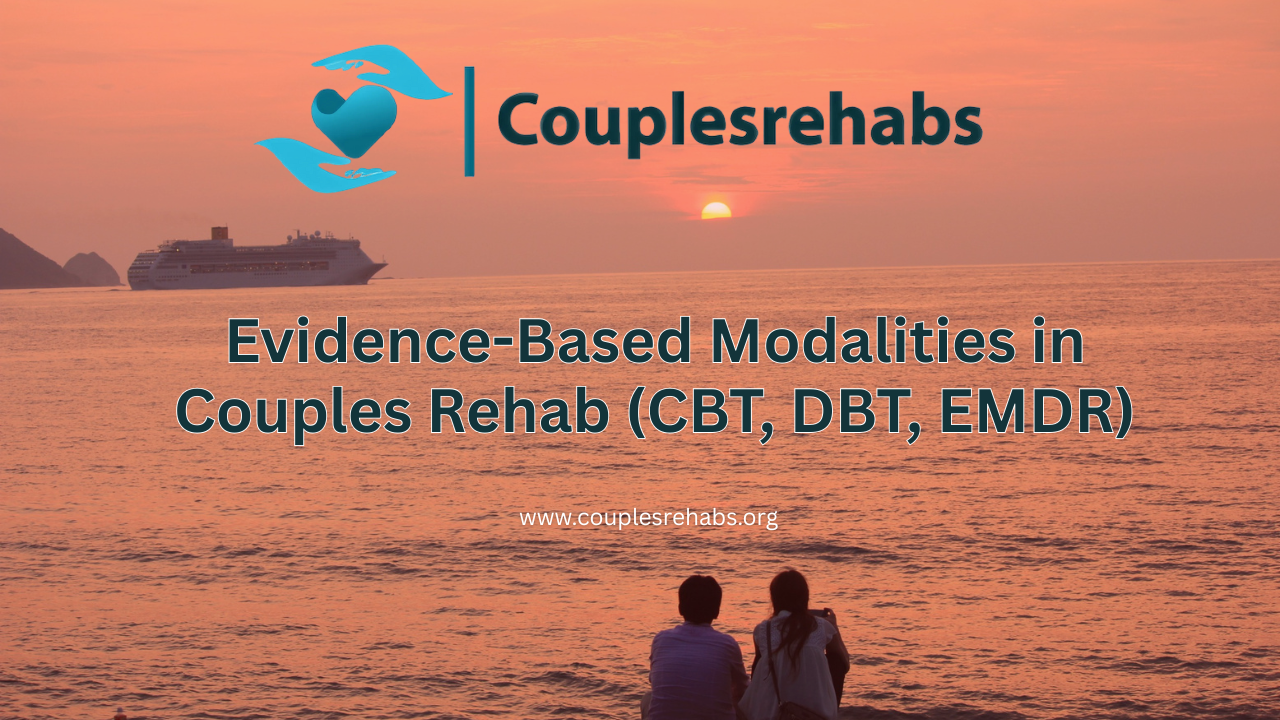

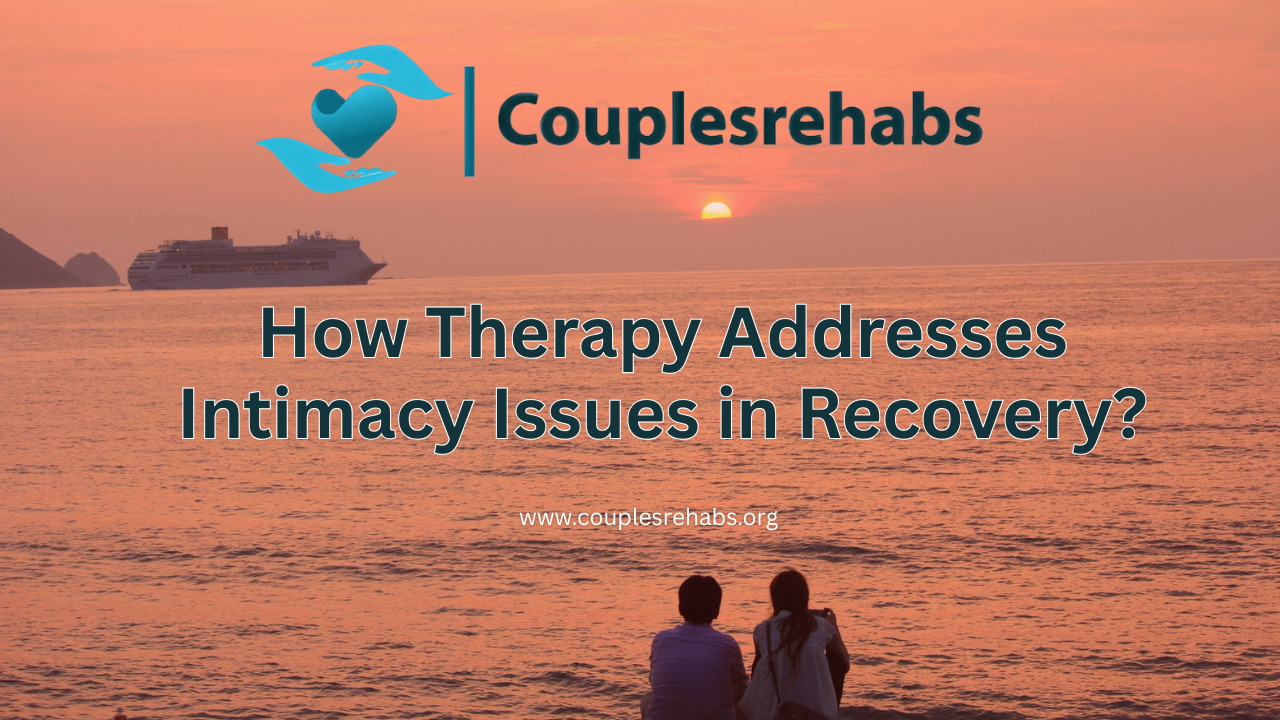



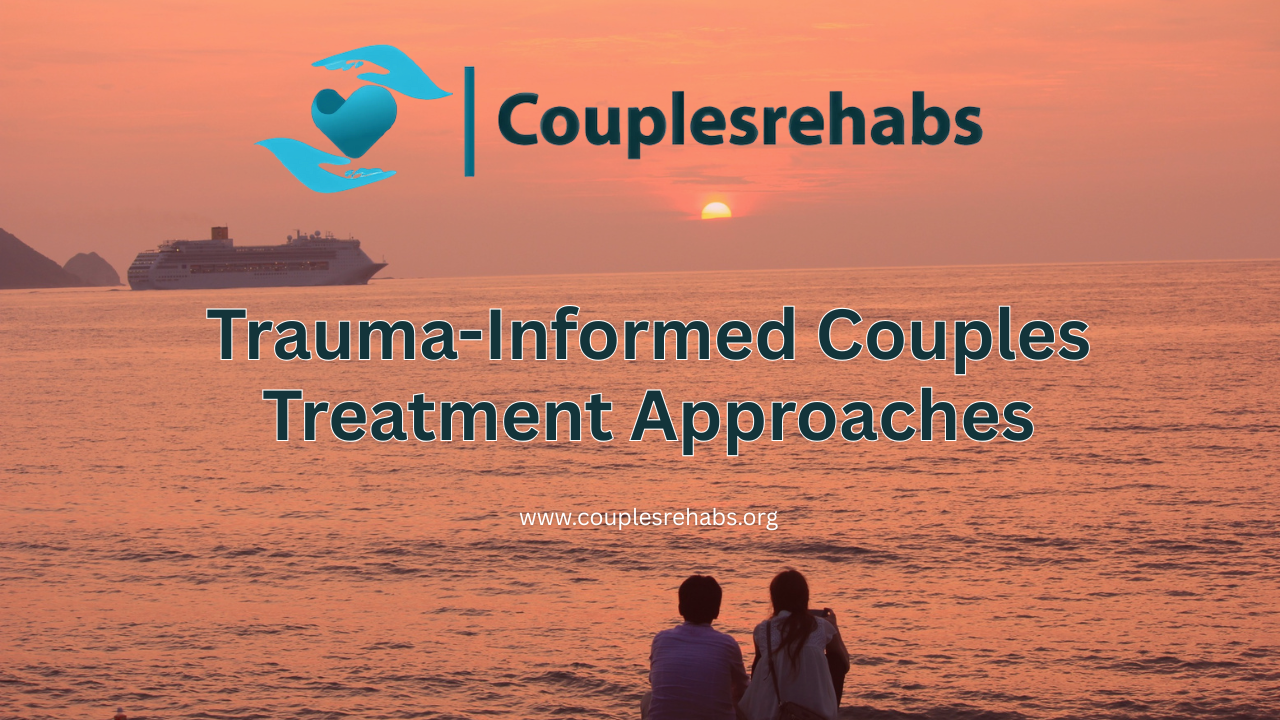

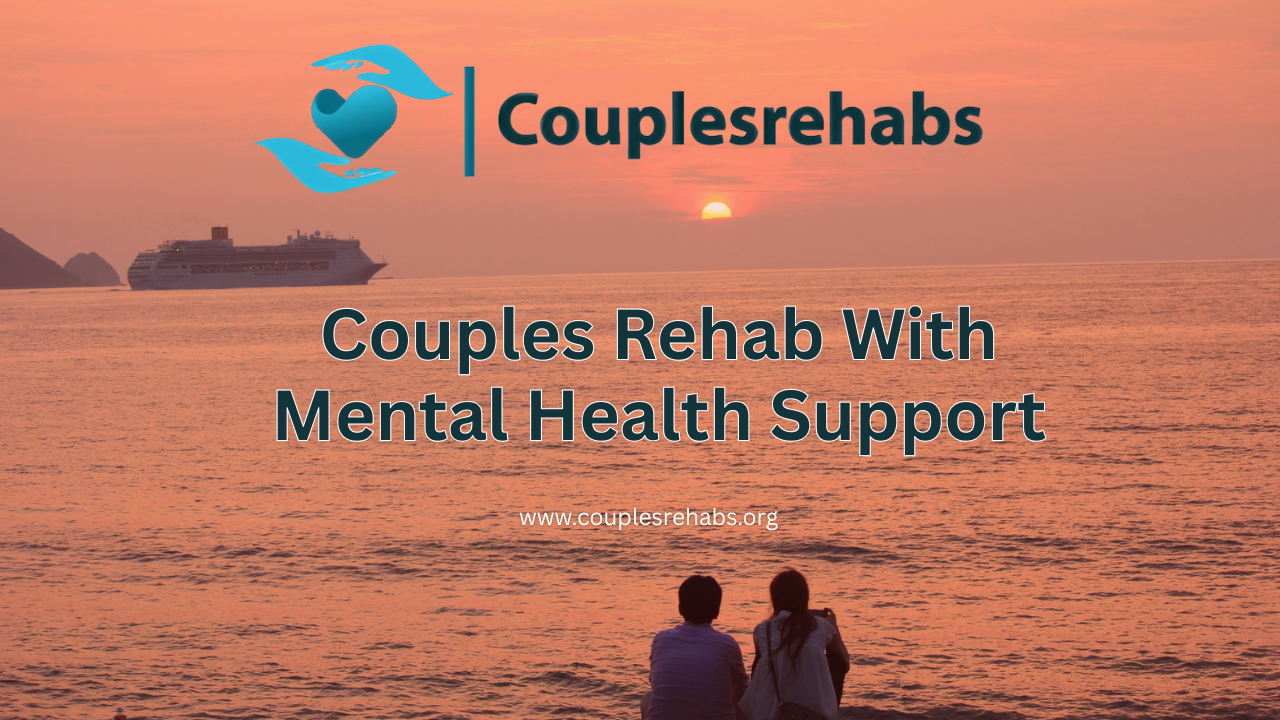

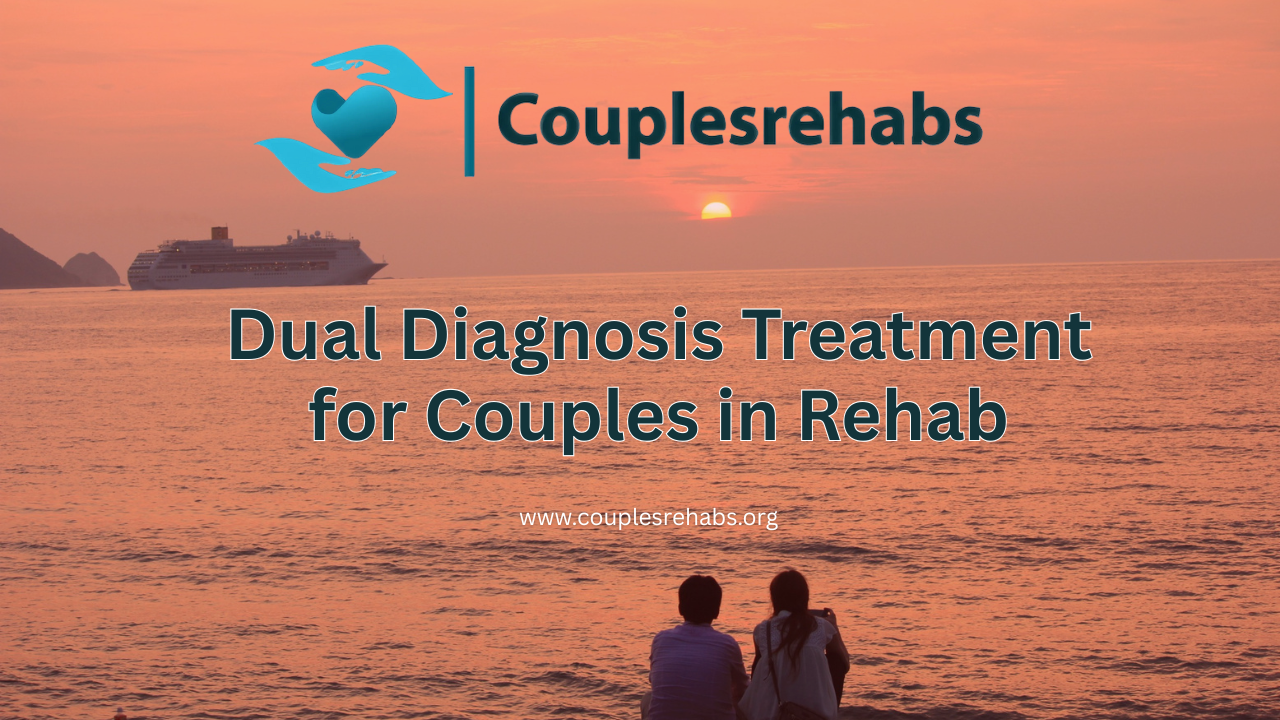

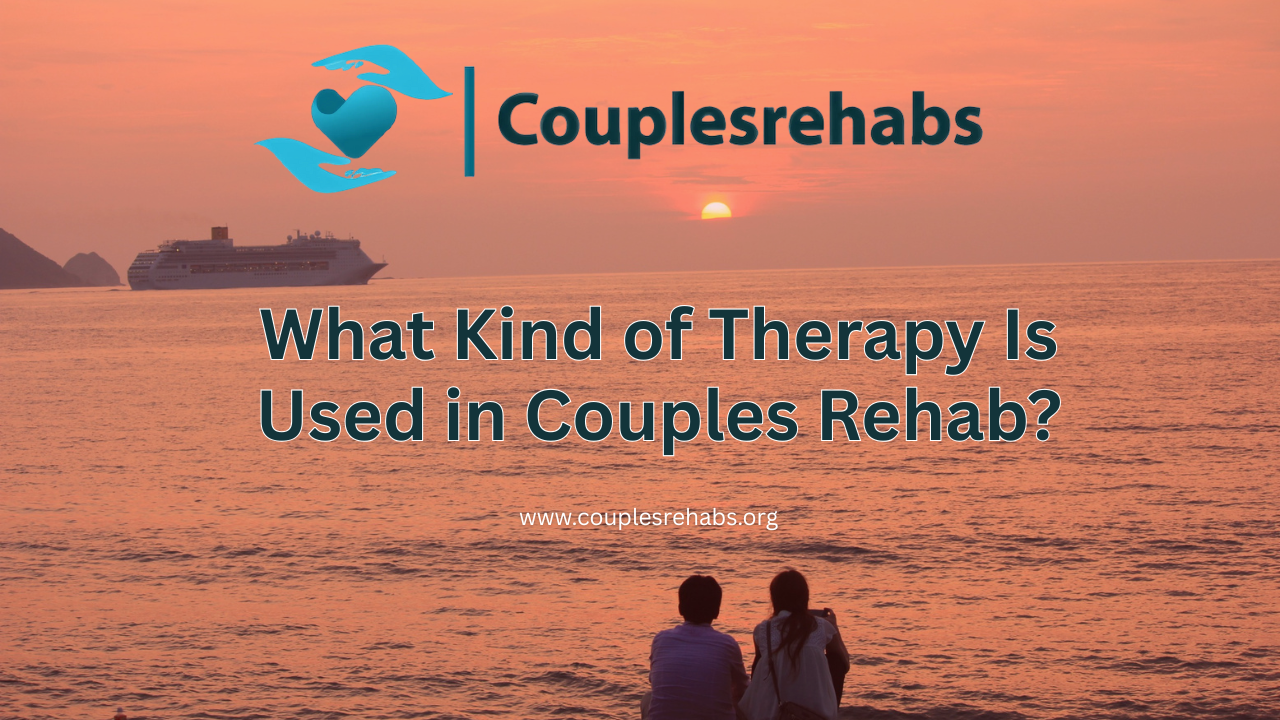

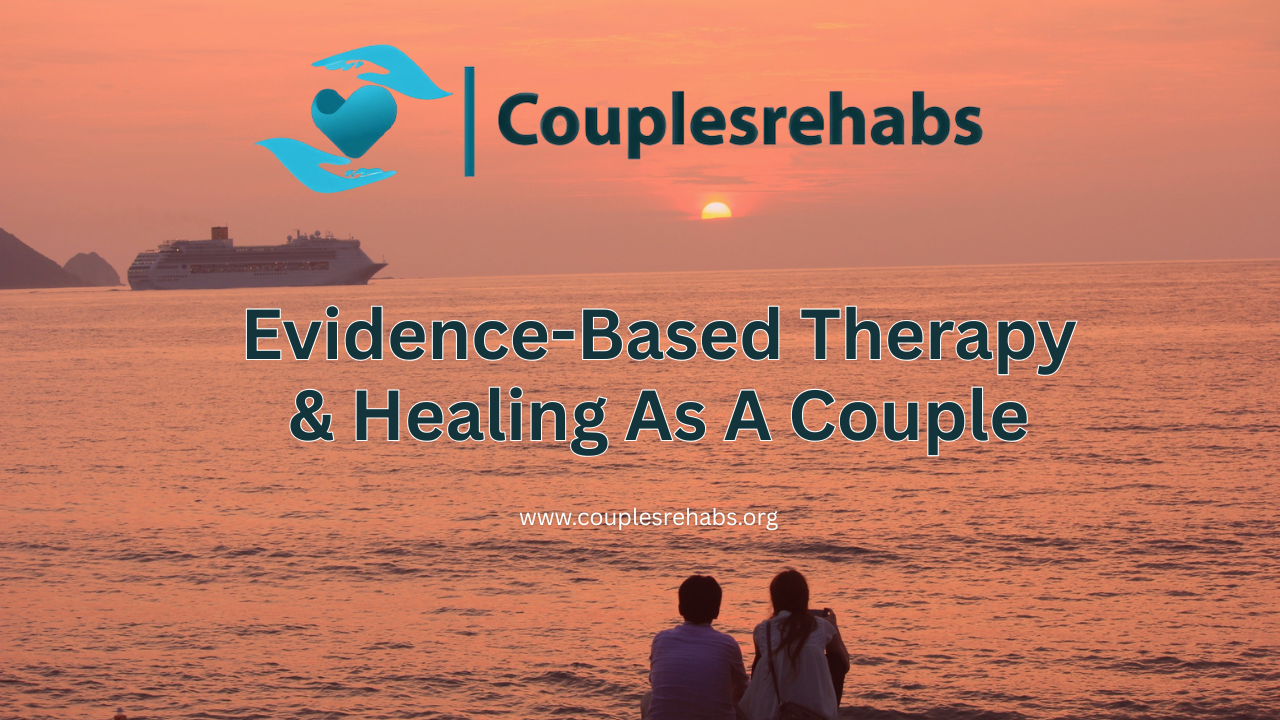

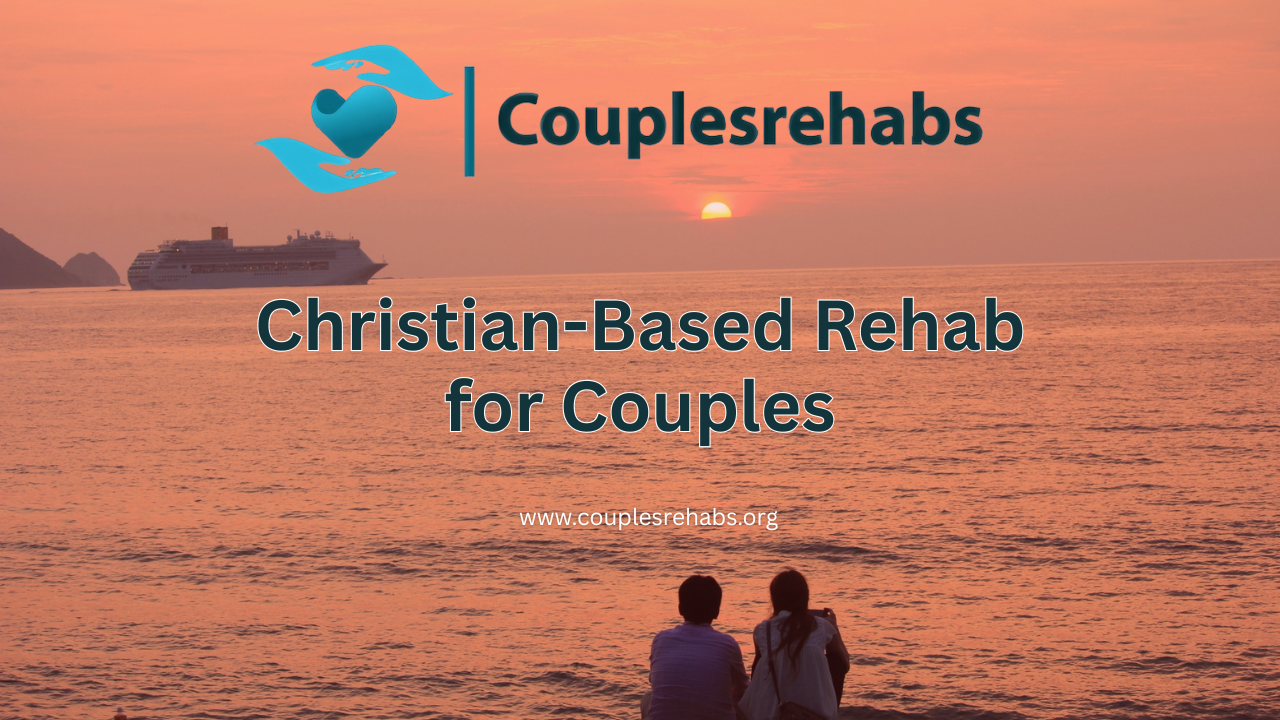

Recent Comments